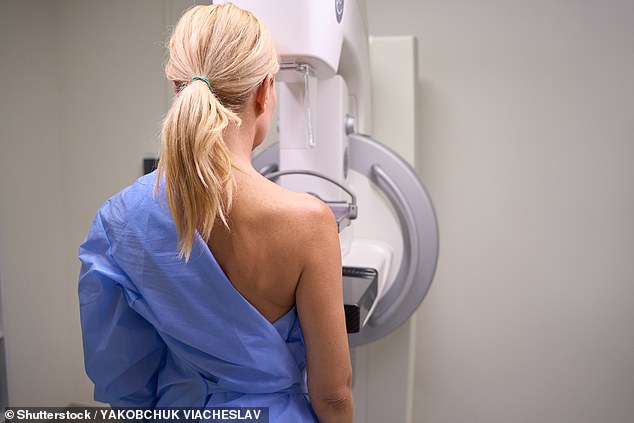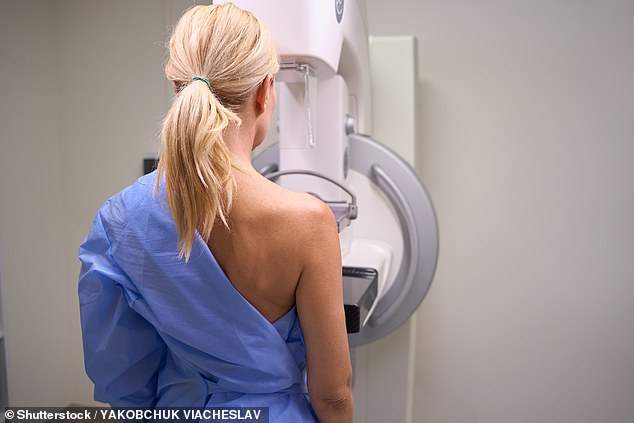Women with breast cancer symptoms can ‘refer’ themselves for scans without going to GP first, in groundbreaking NHS study





Women with ‘worrying’ lumps in their breasts can refer themselves directly to a specialist in an attempt to improve cancer outcomes.
Wes Streeting said the move will have the added benefit of freeing up GP appointments for other patients and could soon be expanded to more conditions.
The Health Secretary made the announcement today at the Royal College of GPs annual conference in Liverpool, where he also pledged to ‘bulldoze the bureaucracy and cut red tape’ so doctors could spend more time on treatment and less time filling out forms.
Mr Streeting told delegates he knew how ‘unbearable’ it is for GPs who spend a fifth of their time on administrative matters, with some doctors forced to fill in more than 150 forms when referring patients to a consultant.
He launched an ‘administrative challenge’, encouraging doctors to let officials know where time savings could be made, and said he and Amanda Pritchard, chief executive of NHS England, would review these.

Women with ‘worrying’ lumps in their breasts can refer themselves directly to a specialist in a bid to improve cancer outcomes
Mr Streeting added: ‘The other frustration I hear from both staff and patients is the pointless appointments you have to make and patients being forced to attend.
“You don’t have five years of medical school, plus five years of training, to check boxes.
‘So if there are appointments that can be scrapped – with patients being seen by specialists more quickly and GPs freeing up time to do what only GPs can do – we will take action.
‘From November, 111 Online, available via the NHS app, will run a pilot to refer women with a worrying lump directly to a breast clinic.
‘That means a faster diagnosis for cancer patients and more GP appointments. Better for patients and better for general practitioners.
‘And I suspect there are other cases that come across your desk every week where a patient is passed to you by someone else within the NHS to refer them on to someone else within the NHS as well.
“It’s a waste of everyone’s time, including yours.

Health Minister Wes Streeting said the move will have the added benefit of freeing up GP appointments for other patients and could soon be extended to more conditions.
‘And if you give us examples of patient pathways that can be simplified for appropriate patient self-referral – or direct referral by other NHS services – to save you time, we will take action.”
Breast cancer is the most common cancer in women in Britain, with around 57,000 new cases diagnosed each year.
About 85 percent of women with the disease will survive for five years or more, but the risk of death increases the later the disease is detected.
During the pilot, women with ‘red flag symptoms’ will be referred to breast diagnostic clinics without having to see a GP first.
If it proves successful, it will be launched in Somerset before being rolled out nationally.
Mr Streeting also urged GPs to end their industrial action, which has seen some halve the number of appointments they offer to just 25 a day.
He warned that the restrictions are ‘punishing’ patients and increasing pressure on other parts of the NHS.
The government will work to introduce individual patient records, which can be accessed by medical staff in GP practices and hospitals, he revealed.
Currently, data is not routinely shared between primary and secondary care, hampering care and forcing patients to reveal their medical history to physicians as they move between organizations.
The ministers also want to make it easier for researchers to use patients’ medical records for research, provided that the patient gives permission for this and that the data is adequately secured.

Checking your breasts should be part of your monthly routine so that you notice any unusual changes. Simply rub and feel from top to bottom, feeling in semi-circles and in a circular motion around your breast tissue to feel for any abnormalities

Breast cancer is the most common form of cancer in Britain, with almost 56,000 cases diagnosed each year
Mr Streeting said: ‘We must work together to create a single patient record, owned by the patient, shared across the system so that every part of the NHS has a full view of the patient.
‘That applies to both research and care. The two go hand in hand.
‘Leading studies such as the UK Biobank, Genomics England and Our Future Health are building incredibly detailed profiles of our country’s health.
‘Patients have given consent for their data to be shared with these studies. But we still see far too often that this data is not shared according to patients’ wishes.
‘I am therefore directing NHS England to remove this burden from you.
‘As during the pandemic, if a patient explicitly agrees to their data being shared with a study, NHS England will take responsibility for making this happen. In return, we will demand the highest standards of data security.”




